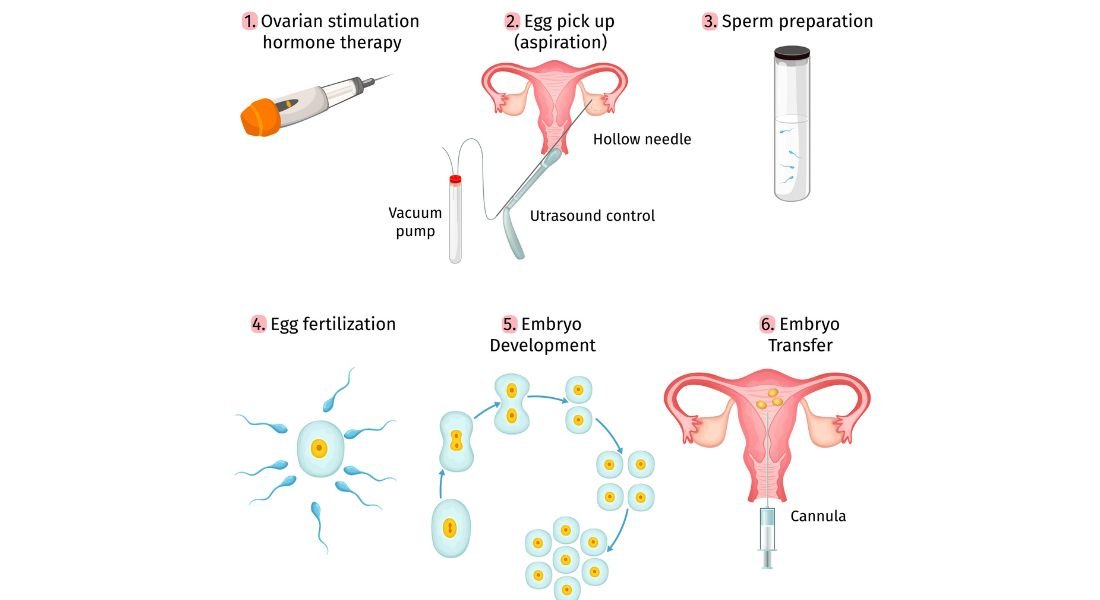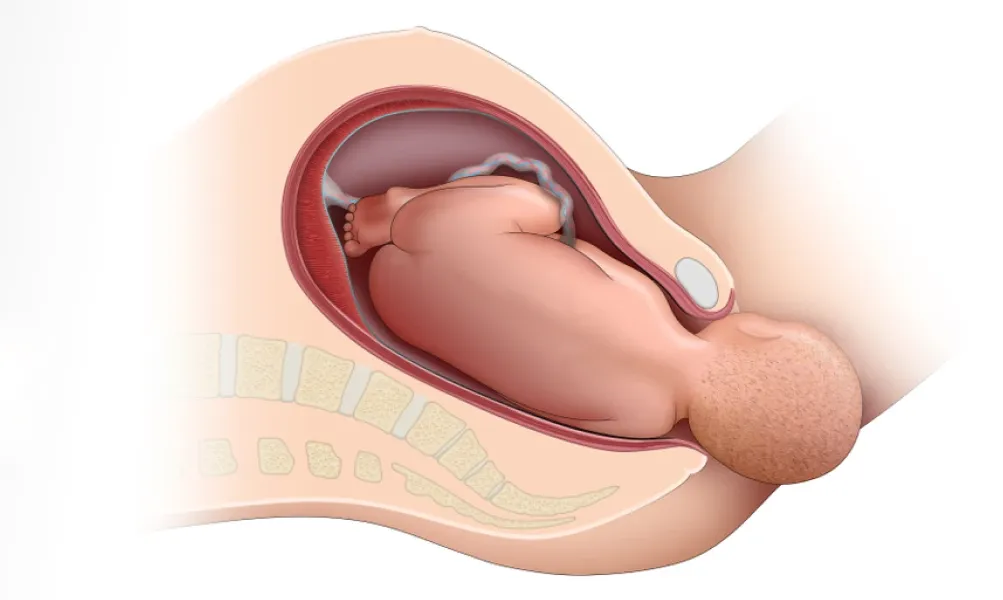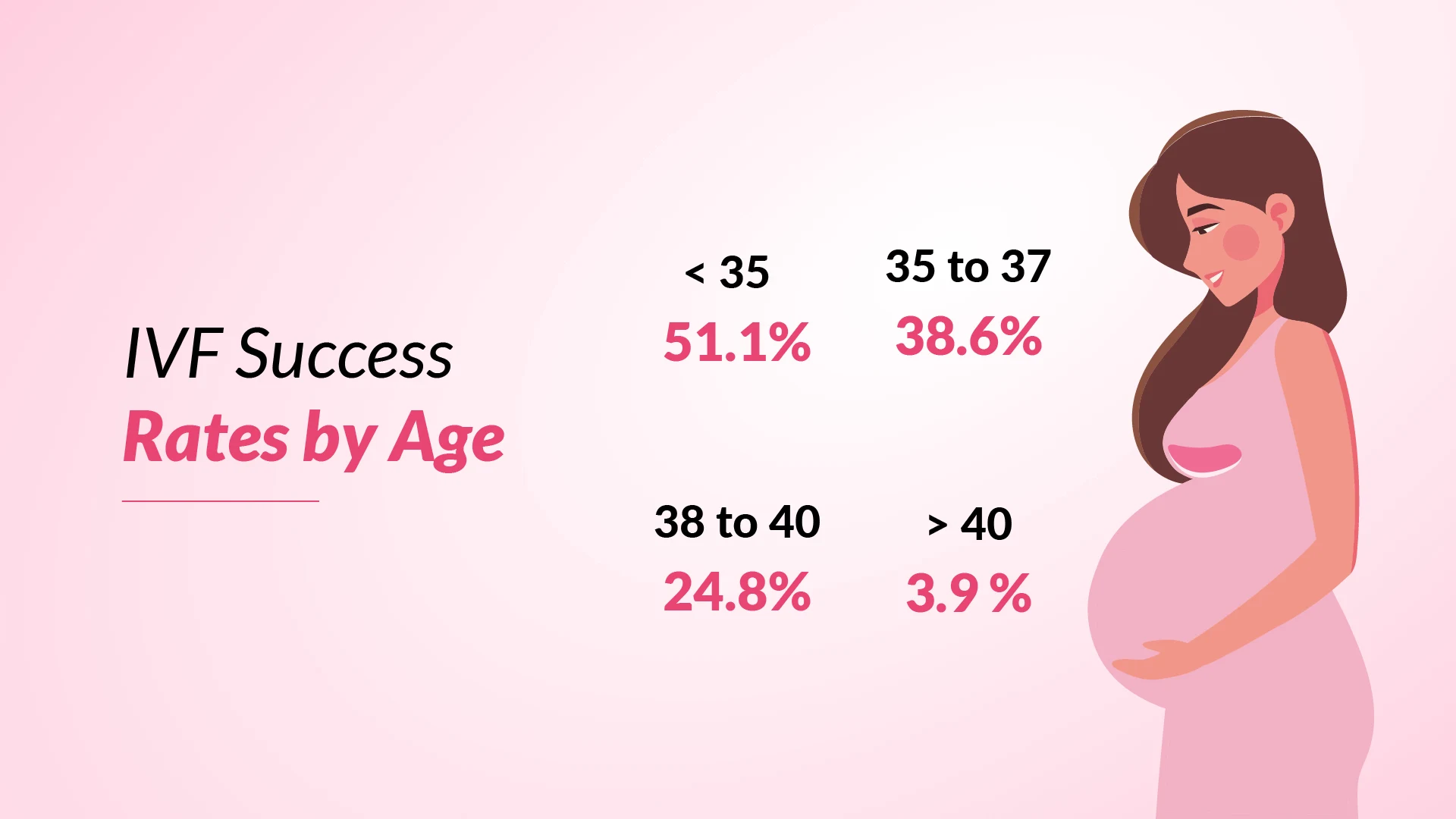No matter if you’re experiencing difficulties with fertility issues, intending to be a single parent, or are part of in the LGBTQ+ community, the process of becoming a parent can be as exciting as it can be nerve-wracking. IVF provides the possibility of a bright future and clear pathway for a variety of couples and individuals who offer a safe and efficient method to start your family.
With a knowledgeable and caring fertility expert on your side, you will be able to manage the IVF procedure with confidence. Choosing the best IVF hospital in Ahmedabad ensures that you receive expert guidance, advanced treatment options, and the personalized care you deserve every step of the way.
In this blog, we’ll take you through the IVF procedure step by step and discuss the criteria to undergo IVF as well as share some important information to ensure you are confident and supported when you take the next step.
The Step-by-Step IVF Journey
1. Diagnostic Testing and Evaluation
Prior to beginning IVF treatment the fertility specialists will run a series of diagnostic tests that will assess your fertility health in depth. This vital first step will help determine any issues that may affect fertility. It also makes sure that the treatment program is tailored for your individual requirements.
Common Diagnostic Tests Comprise:
The blood tests: These measure hormone levels like follicle-stimulating hormone (FSH) and luteinizing hormone (LH), Estradiol, anti-Mullerian hormone (AMH) as well as thyroid functions, which all affect fertility and ovarian reserve.
Ultrasound imaging: Ultrasounds evaluate the uterus and ovaries to identify conditions such as Ovarian cysts, uterine fibroids and other irregularities of the lining of your uterus.
Semen analysis: Male partners, or sperm donors, the semen is examined for count, mobility, and morphology in order to check for sperm health.
Additional tests: Depending on your history, your doctor may recommend hysterosalpingography (HSG) to check fallopian tube patency or genetic screening to identify hereditary conditions.
The comprehensive assessment provides your fertility professional with the knowledge needed for establishing an individual IVF plan, enhancing the odds of the success you desire.
2. Ovarian Stimulation: Preparing Your Eggs
The third phase concentrates on encouraging the ovaries to produce several mature eggs. Normally, in a woman’s menstrual cycle only one egg matures before being released. IVF calls for multiple eggs in order in order to improve the chances that embryos are fertilized and develop.
The injections are given daily and include fertility drugs, like FSH, which is a follicle-stimulating hormone (FSH) or human menopausal Gonadotropin (hMG) which lasts for 8-14 days. Your fertility specialist will be monitoring your progress with the use of ultrasounds and blood tests, keeping track of follicle size as well as hormone levels.
At this stage of the IVF journey, it’s normal to experience mild side effects such as bloating, mood swings, or slight discomfort. However, when you’re under the care of the best IVF doctor in Ahmedabad, you can rest assured that your symptoms will be closely monitored. The medical team will guide you through every step and adjust your medication as needed to ensure your comfort and safety throughout the process.
3. Egg Retrieval: Collecting Your Eggs
If your follicles have grown to a size that is ideal the doctor will then schedule the procedure for egg retrieval. In the 36-hour period prior to this procedure you’ll be given a “trigger shot” of human chorionic gonadotropin (hCG) or a GnRH, an agonist that will trigger the maturation process and the release of eggs.
Egg retrieval is a relatively intricate procedure done under light anesthesia or under sedation. With the help of ultrasound, the fertility physician injects a fine needle into the vaginal wall in order to access the ovaries to remove eggs from follicles.
The procedure generally lasts between 15 and 30 times. Patients typically experience minor cramps or spots after the procedure, but healing is generally quick so you can resume regular activities in a day or two days.
4. Fertilization and Embryo Development
Following egg retrieval The eggs that are collected will be taken immediately into the lab in which they’re fertilized by the sperm of your partner or donor. Fertilization can occur via:
Conventional IVF: Sperm and eggs are combined in a dish before being incubated to permit natural fertilization.
Intracytoplasmic Sperm Injection (ICSI): A single injection of sperm directly into each egg. This is a common procedure in cases where quality of sperm is a problem.
After fertilization, embryos start to divide and develop. They grow from one cell stage to multi-cell ones before becoming blastocysts at day 5 and containing about 100 cells.
The embryologists closely monitor the embryos and select the healthiest ones for the transfer. When you reach this point you can opt to take a preimplantation genetic test (PGT) to screen for genetic problems, which can increase the odds of a positive as a balanced pregnancy.
5. Embryo Transfer: Implanting New Life
Embryo transfer is the most important stage of the IVF laboratory process. It is usually performed on the third or fourth day of 5 following fertilization. Your fertility specialist will insert an embryo or two in your uterus with an extremely thin and malleable catheter.
It is completely painless and can take only a few minutes. It is possible to experience mild discomfort after the procedure; however, most people can return to their regular routine right away.
Once you’ve had your transfer, you’ll be taking hormonal support medication like progesterone in order to make your uterine lining ready to allow for the implant.
A couple of weeks later the results of a blood test can confirm that the embryo is successfully implanted and if pregnancy is achieved.
Are You a Good Candidate for IVF in Ahmedabad?
IVF is an incredibly effective treatment option, which is highly recommended in a range of circumstances, which include:
- Endometriosis: Tissue scars that affect the ovaries and fallopian tubes may affect natural conception.
- Polycystic Ovary Syndrome (PCOS): Hormonal imbalance and irregular ovulation could cause difficulties in pregnancy.
- Fallopian tubes: Stop eggs as well as Sperm from forming naturally.
- Male factor infertility: A low number of sperm or other issues with motility could require assisted fertilisation.
- Genetic conditions: IVF with genetic tests lowers the risk for inherited diseases.
Pelvic inflammation and other uterine disorders
- Cervical mucus problems: Affect sperm mobility.
- Unexplained infertility: If no particular reason is found.
- Single parents as well as LGBTQ and people: IVF combined with donor sperm or surrogacy can meet different family-building needs.
If you fall into all of them or had difficulty conceiving for longer than 12 months (or six months if you are older than 35) seeking the advice of a fertility expert will help you decide whether IVF is the right choice for you.
Lifestyle Tips to Enhance IVF Success
Even though IVF is a treatment for fertility, the lifestyle of the patient could affect its results:
A balanced diet is essential: Nutrient-rich foods support the balance of hormones and improve reproductive health.
Maintain a regular exercise routine: Moderate exercise helps lower stress levels and boost circulation.
Beware of alcohol and smoking: Both negatively impact the fertility of a woman and her pregnancy.
Manage weight: Being underweight or overweight can affect IVF success.
Reduce caffeine consumption: Consumption of excessive caffeine is related to decreased fertility.
A fertility expert can give individual recommendations that will optimize your fertility for IVF.
Learn More About IVF and Take the Next Step
IVF is a highly effective multi-step procedure that involves an ovarian stimulation procedure, egg retrieval fertilization, egg retrieval, and the transfer of embryos. It provides hope and answers for couples and individuals experiencing fertility problems or considering different options for conceiving.
Lifeline Women’s Hospital & IVF Centre, our dedicated reproductive experts are aware of the challenges of fertility, and they are dedicated to helping you throughout the process. When you’re starting your journey, or looking for an additional opinion, Lifeline Women’s Hospital & IVF Centre offers compassionate support and the most cutting-edge treatments.




